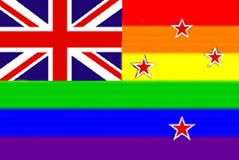It's great that the NZ Herald has decided on International Women's Day to continue their long standing tradition of telling women how to behave 'appropriately'. I am of course, referring to the offensive piece of psuedo-journalism titled, "Be a lady - not a blokette - women urged".
http://www.nzherald.co.nz/section/1/story.cfm?c_id=1&objectid=10496933&ref=rss
There are two messages here. One is a warning against the effects of over-indulging in alcohol and having unsafe sex- a very important message. The other is the incredible double standard that the writers and those involved in this article hold to women compared with men- it's condescending, and it's outdated.
"Spokeswoman Christine Low said along with a rise in unsafe sexual behaviour, one in four women had revealed they could not remember what they did when drinking alcohol. She said that kind of behaviour led to women potentially putting themselves into situations with life-changing consequences. [...]"There is also the increased possibility of becoming the victims of physical and sexual violence.""
It makes my blood boil whenever I read anything that suggests that women are responsible for keeping themselves safe from sexual attacks. The responsibility and the blame is not theirs to carry, and blatant sexism masquerading as a public service announcement is insulting at best and insidious at worst.
Reading this article critically, it tells us that it's acceptable for men to act a certain way, but not women. If the message is really that people should be mindful of how they take care of their bodies, by taking precautions around sex and by not over-indulging in alcohol, then why is the article not directed at all people instead of just women? By targeting this safety information only to females they are reinforcing the idea that men can police themselves whereas women need "guidance" to tell them what is appropriate- which according to the Herald, is to "act like ladies".
"The National Council of Women said New Zealand women were blazing across political and economic barriers, but socially seemed to be confusing empowerment with what had been historically classed as the domain of stereotypical male behaviour."
Well now, it's possible I'm confused, but that seems pretty patronising. It's saying that if a woman acts in a way that could be read as stereotypically male, she's not being empowered, she's being confused. Here I was, thinking that empowerment was the ability to behave in the manner you think best befits you, regardless of stereotypes. If binge drinking and unsafe sex are typically male behaviours, I feel sorry for the hyper-testosterone afflicted among us- being male (according to the Herald and the NCW) means consistently exercising poor judgement and making unwise sexual choices. Perhaps the Herald should focus on the male population should future advice need to be metered out on the topic?
"Women needed [sic] to realise that empowerment does not disenfranchise them from being a woman", she said."
Ms. Low seems to see empowerment and womanliness as being essentially oppositional- it's obvious from her statement that "being a woman" is something that you can forget about easily if empowerment comes your way. (Watch out women, empowerment coming! Hold on to your breasts!)
"Ms Low saod [sic] women needed to know it was perfectly acceptable to act and behave like a woman and not a "blokette" with something to prove to their male counterparts."
I wonder what Ms Low's version of acting like a woman looks like. It obviously doesn't have anything to do with acting irresponsibly. Because what woman would act irresponsibly at times?
The main problem that I have with this article is that it propagates the oppositionally sexist idea that women and men should act in separate, distinct ways- and if women act in ways that men are expected to, they are confused or trying to prove something to men. I wont argue that men and women aren't different a la social constructivism- even if I do feel that gender conditioning has a lot to answer for. What I will argue for is the equal treatment of women and men; public service announcements should be just that- announcements to the public- not an opportunity to preach to women about how people outside of themselves wish them to act.
Saturday, March 08, 2008
Subscribe to:
Comments (Atom)
